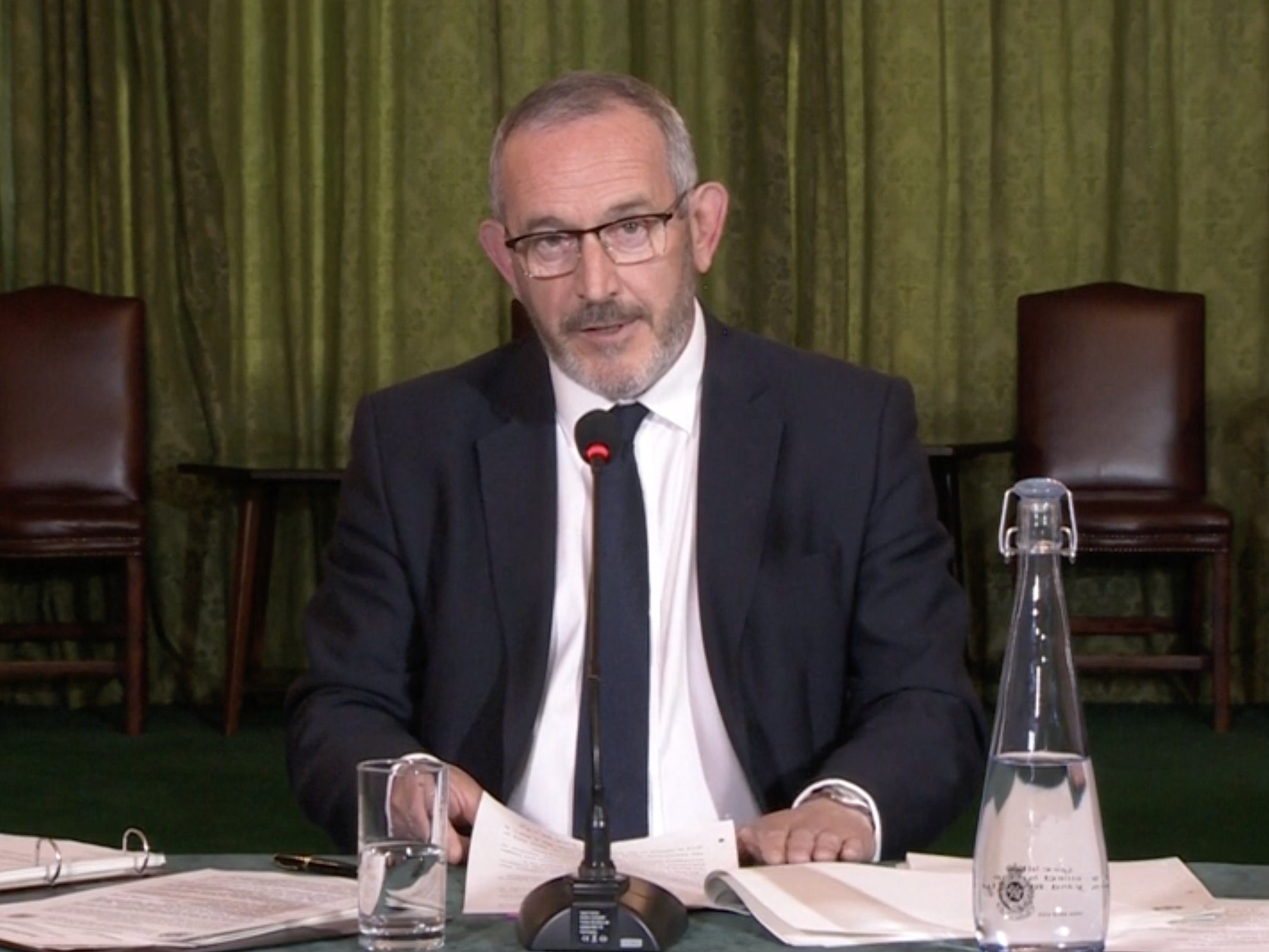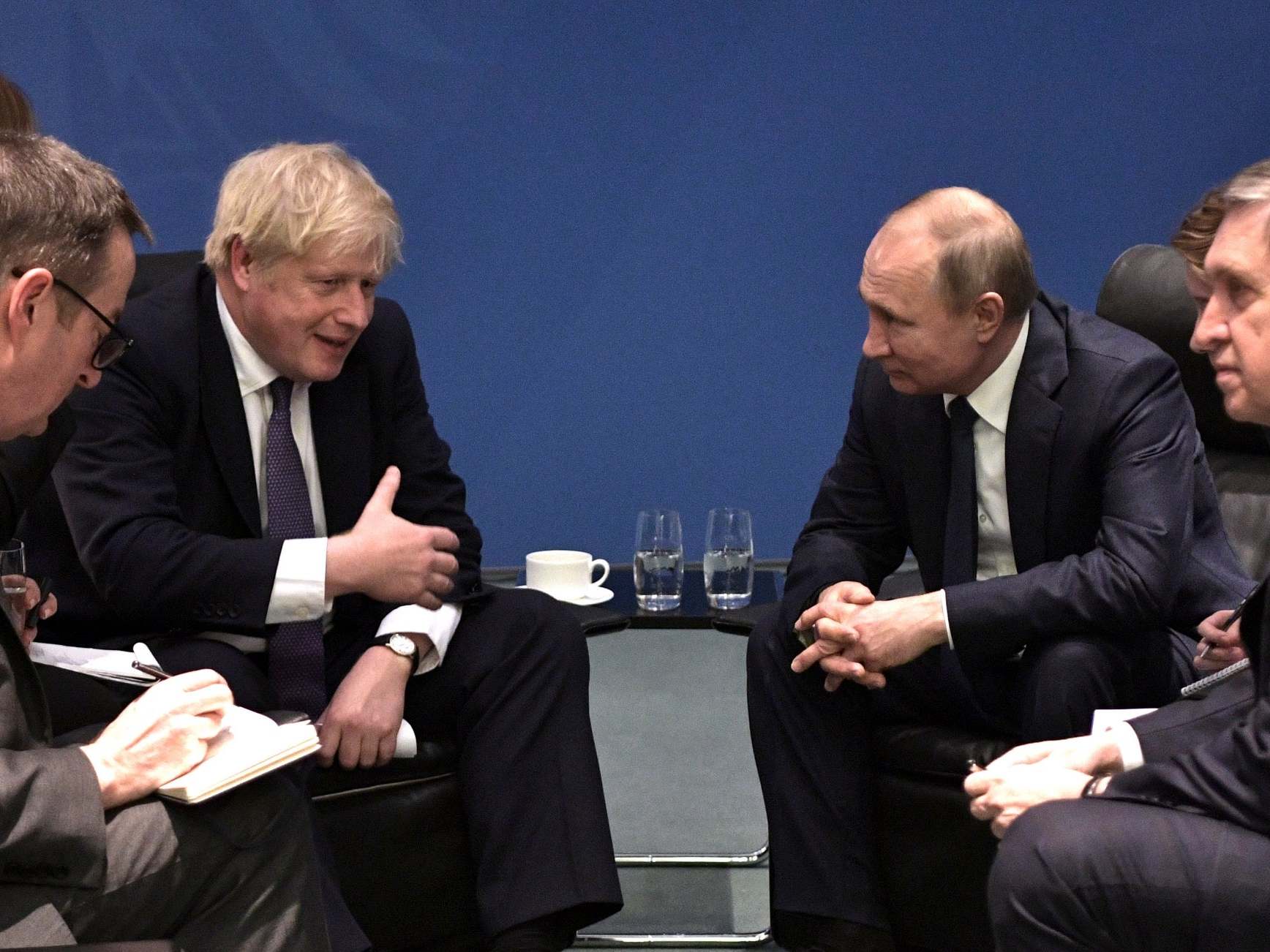The long-awaited official report on Russia’s activities in the UK has concluded that Downing Street “took its eye off the ball” and failed to respond to a range of threats from Moscow.
The Intelligence and Security Committee said it was “astonishing” no-one in government had sought to protect the electoral processes from potential subversion – and concluded the influence of Russian money in the UK is so pervasive it amounts to a “new normal”.
So what are the very biggest takeaways from the 50-page dossier?
Government ‘avoided’ looking into potential Brexit vote meddling
The committee said it was unable to determine whether Russia attempted to influence the EU referendum in 2016. When asked for evidence, the domestic intelligence agency MI5 had provided the ISC with just “six lines of text”, the report stated.
Criticising the government for avoiding attempts to investigate any efforts to influence the outcome of the Brexit vote, the committee said the government “did not want to know” if there had been interference – and had “actively avoided looking for evidence”.
“We were told they hadn’t seen any evidence, but that is meaningless if they hadn’t looked for it,” said committee member Stewart Hosie, adding that the no-one in government wanted to touch the issue with a “10-foot pole”.
The ISC urged Boris Johnson to order a review of “potential” Russian interference in the Brexit referendum – a call swiftly rejected by the government.

‘Credible’ claims Russia tried to interfere in the Scottish referendum
The ISC found that there was “credible open source commentary” suggesting that Russia undertook influence campaigns in relation to the Scottish independence referendum in 2014.
In redacted comments that follow, the report cites "what some commentators have described as potentially the first post-Soviet Russian interference in a Western democratic process.”
More now needs to be done by security services and the intelligence community to assure the public that elections and the democratic process are safe, said the ISC.
Russians close to Putin are embedded in UK ‘because of their wealth’
Russia’s “elite” and those close to Vladimir Putin – aided by the UK’s 1994 investor visa scheme – have put money into so many different sectors in Britain that any government measures against them would be “damage limitation”, the report states.
The committee said the investor scheme “offered ideal mechanisms by which illicit finance could be recycled through what has been referred to as the London ‘laundromat’”.
“In brief, Russian influence in the UK is ‘the new normal’, and there are a lot of Russians with very close links to Putin who are well integrated into the UK business and social scene, and accepted because of their wealth.”

PR firms, charities and academia all ‘beneficiaries’ of Russian money
The Russia report also revealed the staggering influence Russian money has had on all aspects of British life, referring to “the growth industry of enablers” in the UK.
“The money was also invested in extending patronage and building influence across a wide sphere of the British establishment – PR firms, charities, political interests, academia and cultural institutions were all willing beneficiaries of Russian money,” the ISC stated.
While the report did not go into any detail on political donations, it did note that “a number of members of the House of Lords have business interests linked to Russia, or work directly for major Russian companies”.
It said these relationships should be “carefully scrutinised” – given the potential for Moscow to exploit them.
Russian cyber-attacks pose ‘urgent’ threat to UK security
The ISC reports states that Russia’s cyber capability “when combined with its willingness to deploy it in a malicious capacity, is a matter of grave concern” – and poses an “urgent” threat to the UK’s national security.
Its report said GCHQ had advised that Russian actors had “orchestrated phishing attempts against Government departments”, including against the Foreign Office and the Defence Science and Technology Laboratory (DSTL) during the early stages of the investigation into the Salisbury attacks in 2018.
UK too slow to understand Russian threat – including murder
The Intelligence and Security Committee said it had been clear Russia under Putin “has moved from potential partner to established threat, fundamentally unwilling to adhere to international law” – highlighting the murder of Alexander Litvinenko in 2006 and the annexation of Crimea in 2014 as “stark indicators”.
The committee questioned whether the government “took its eye off the ball” because of its focus on counter-terrorism. “It was the opinion of the committee that until recently the government had badly underestimated the response required to the Russian threat – and is still playing catch up.”
The report recommended new legislation to tackle foreign spies, describing the current Official Secrets Act as “not fit for purpose”. The report added: “Russia poses a tough intelligence challenge and our intelligence agencies must have the tools they need to tackle it.”







